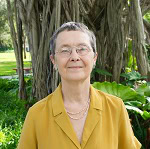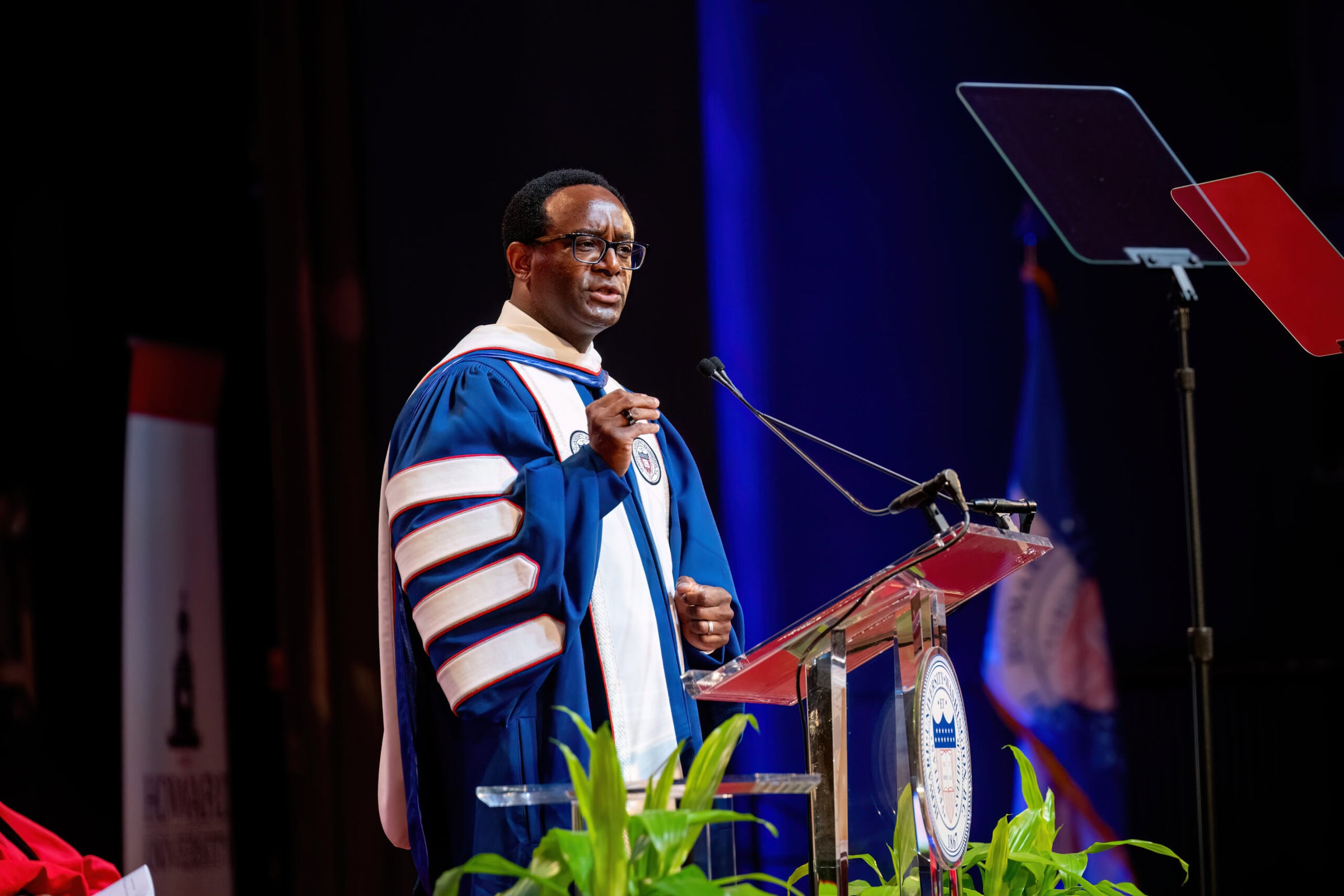The final column each president writes often takes the form of a personalized retrospective. When I took office in January, there were whispers of a new viral respiratory disease that had broken out in China’s Wuhan Province. Precise information was vague and incomplete. It was worrisome but far away, and even I, as a medical historian, who realizes how quickly a local outbreak could flare into a global catastrophe, was not particularly alarmed. However, the COVID-19 pandemic and its far-reaching impact on our discipline soon came to dominate my term as the AHA’s president.
COVID upended normal life. Under the circumstances, it is hardly surprising that three of my columns over the past year explicitly addressed the pandemic’s effect on historians, and it has been in the background of other columns as well. From my position as AHA president, I saw the myriad ways that COVID reshaped the work that historians do in all sorts of venues and in all forms. This year, the AHA’s Council issued a Statement on Historical Research during COVID-19, urging universities to accommodate faculty and students who have had their research agendas interrupted by the pandemic. We also issued a Statement on Departmental Closings and Faculty Firings in response to the unprecedented financial strain placed on many institutions by the pandemic and the growing number of history departments that came under the budgetary axe. The AHA also initiated a Historians Relief Fund to assist unemployed or underemployed historians who have been financially affected by the pandemic. I have been heartened by the generosity of my fellow historians. As this goes to press, AHA members have donated $55,859 and 75 grants have been distributed during two application periods.
The pandemic is an ever-present reality. Without denying the anxiety and precarity that COVID has created, I would like to frame my final column as president by returning to the mood of my first, which was about the creation of community in both the AHA and the discipline as a whole. Despite the awful parts of 2020, much happened this year that was admirable and impressive, even amazing. Despite the undeniable difficulties we experienced, despite the uncertainties and the sometimes poorly conceived policies of administrations (whether in scholarly institutions or government), the AHA, history departments, K–12 educators, and museums and libraries have accomplished a great deal. Under difficult circumstances, all have undertaken a wide variety of projects and launched initiatives, often creatively conceived and executed, to preserve intellectual and scholarly life amid a global pandemic.
The AHA as an organization has been incredibly active in responding to the crises its many constituencies have experienced. The activities of the organization and its staff, under exceedingly difficult circumstances, have been little short of awe-inspiring. At the beginning of the year, the AHA staff was splitting their time between a WeWork facility and their homes while awaiting the completion of renovations to the townhouse headquarters. In February, they briefly returned to the newly restored, far more functional townhouse. By mid-March, however, the staff was again working remotely, isolated in their homes and managing everything by Zoom, as were most of us. During the same period, some staff left for other employment, new staff were hired, and a staff reorganization occurred.
Despite the awful parts of 2020, much happened this year that was admirable and impressive, even amazing.
Location and staffing, major challenges in any year, were probably the simplest of the problems faced by the AHA this year. What to do about the annual meeting became a central concern that touched on everything from the organization’s bylaws to hotel contracts and public health guidance. There was also the question of how to serve the entire historical community when it was neither prudent nor safe to congregate in person. After careful and thoughtful deliberation, the Council and staff made the inevitable and responsible decision to cancel the in-person annual meeting scheduled for January 2021 in Seattle and began to reshape the annual meeting under novel circumstances.
To address the issue of maintaining the AHA’s vast range of activities, the Association created Virtual AHA to offer a series of online opportunities “to bring together communities of historians, build professional relationships, and engage in professional and career development.” It will run through June 2021. Under the umbrella of Virtual AHA, the AHA Colloquium presents content drawn from the originally scheduled 2021 meeting, including career development workshops, panels on research and teaching, and much more. Virtual AHA also includes a series of History Behind the Headlines webinars, National History Center programming, and a Virtual Exhibit Hall. I suspect that every member of the AHA can well imagine what this shift entailed and the amount of work it meant for the staff and the program committee to transform a meeting with more than 300 sessions into a series of webinars and virtual panels.
The AHA’s rapid response to the pandemic was multipronged and included a series of webinars on research and teaching created especially for historians teaching remotely for the first time, as well as a similar series for department chairs addressing issues of teaching, graduate student applications and admissions, and considerations of tenure and promotion standards. The Remote Teaching Resources, funded by an NEH CARES grant, compiled materials and tools to help historians develop courses and teach remotely in online and hybrid environments. The NEH CARES grant also supported the compilation of A Bibliography of Historians’ Responses to COVID-19. That bibliography, professionally vetted by AHA staff, is a valuable resource for those looking for historical perspectives on the crisis. Perspectives amplified these conversations, publishing many articles offering historical context for COVID as well as a series of “Remote Reflections” on teaching over the summer, with plans to publish a second set of articles under that umbrella this winter focused on changing research practices.
We have, as a group, done far better than merely muddling through.
The AHA has also been very busy, more so than perhaps ever before, in fulfilling its advocacy functions and in drafting and publishing statements, often issued in conjunction with or co-signed by other associations, frequently with member organizations of the ACLS and with AHA affiliates. In addition to COVID-related statements, the AHA issued an important and powerful Statement on the History of Racist Violence in the United States in June. The AHA supported the rights of dissident, harassed, and even imprisoned scholars in other countries, and supported historians in the United States in their right to free speech. The AHA has always taken up the cudgels in these causes, but the activity during these troubled times has been far more frequent and intense.
But if the AHA has stepped up to deal with unprecedented crises in American society, others too have been exemplary in trying to maintain a modicum of normalcy in very abnormal times. Despite the disruptions, history departments and their faculties have pulled together to continue teaching and mentoring under extremely difficult circumstances, personal as well as professional. We have not always been happy with outcomes, and we have often been at odds with our employers and administrators, but the results have been impressive, and the cooperation of historians with their colleagues, no matter where and in what capacity, whether in museums, libraries, public institutions, government organizations, or higher education, has been impressive. We have, as a group, done far better than merely muddling through.
At the end of my presidential year, and despite the undeniable difficulties we still face, I can say, without hesitation, that it has been a rewarding experience. My hat is off to all of those who have worked indefatigably in the best interests of the discipline. I am tired, as we all are, but I am not depressed, and I look forward to the next decade of the AHA’s history, beginning in 2021 under the leadership of Jacqueline Jones (Univ. of Texas at Austin).
This work is licensed under a Creative Commons Attribution-NonCommercial-NoDerivatives 4.0 International License. Attribution must provide author name, article title, Perspectives on History, date of publication, and a link to this page. This license applies only to the article, not to text or images used here by permission.


